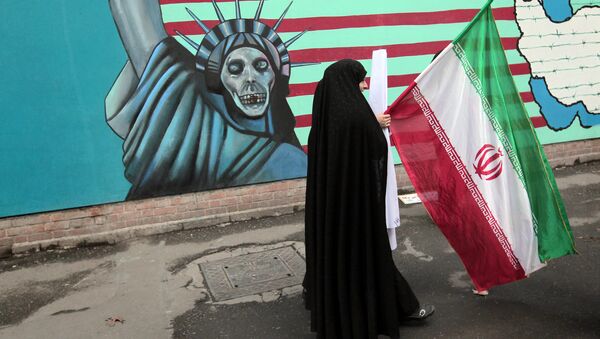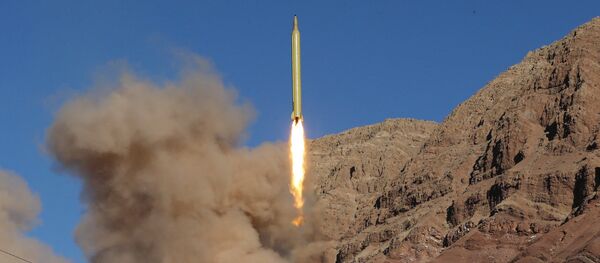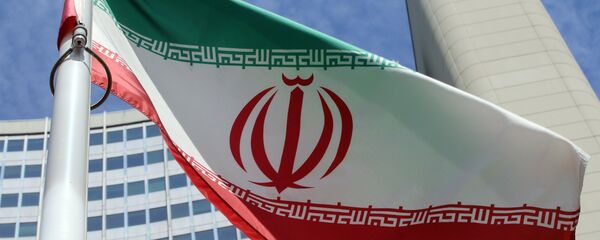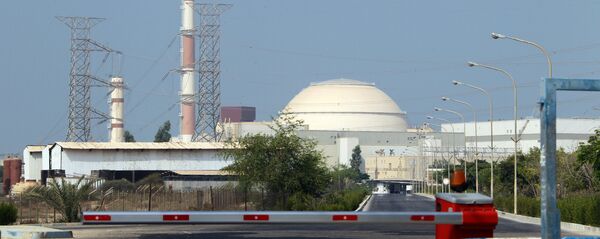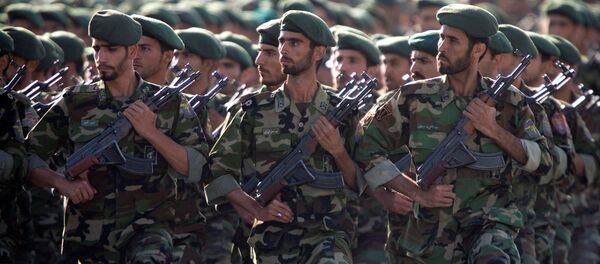Among the entities sanctioned were one Turkish and four Chinese companies, as well as two IRGC organizations.
The sanctions freeze any of the individuals’ or entities’ assets that are subject to US jurisdiction and generally prohibit US companies or persons from doing business with them.
Earlier on Tuesday, US Secretary of State Rex Tillerson certified to Congress that Iran is fulfilling its obligations under the Joint Comprehensive Plan of Action (JCPOA), the nuclear agreement reached in 2015 with the P5+1 group of countries.
Under the terms of the 2015 deal, the United States agreed to lift nuclear-related economic sanctions on Iran in exchange for assurances Tehran’s nuclear program would remain peaceful.
President Donald Trump has repeatedly criticized the JCPOA, calling it one of the worst deals in history.
The State Department said Tuesday that the United States "continues to waive sanctions as required to continue implementing US sanctions-lifting commitments in the JCPOA" while the review continues.
In 2010, the United Nations Security Council passed a resolution calling on Iran to refrain from "any activity related to ballistic missiles capable of delivering nuclear weapons, including launches using ballistic missile technology."
Tehran maintains its ballistics program complies with the resolution. Following the latest ballistic missile test-launch in February, Iranian Foreign Minister Javad Zarif said the test did not violate the UN resolution because the missiles are not produced to carry nuclear warheads.
The JCPOA does not apply to Iran’s ballistics program, and former President Barack Obama’s administration continued to impose new sanctions on the IRGC after the nuclear deal was implemented.
Congressional Republicans, who are widely opposed to the nuclear deal and Iran, have also continued to advocate tough sanctions against Tehran and the IRGC.
IRGC-Linked Companies
In a press release Tuesday, the State Department said it sanctioned two IRGC organizations under a 2005 executive order targeting "activities or transactions that have materially contributed to, or pose a risk of materially contributing to, the proliferation of weapons of mass destruction or their means of delivery."
Additionally, the Treasury Department sanctioned an Iran-based company and three of its directors for providing or attempting to provide support to the IRGC.
Rayan Roshd Afzar Company has produced technical components for the IRGC’s drone program, software for its aerospace program, and tools the IRGC uses to restrict social media and telecommunications in Iran, the Department said.
Rayan Roshd CEO Seyyed Reza Ghasemi, its board chairman Mohsen Parsajam and a company representative, Farshad Hakemzadeh, were also sanctioned.
OFAC alleged Parsajam obtained "a range of military-applicable items from China on behalf of Rayan Roshd" and completed other contracts worth tens of millions of dollars with Iranian customers including the IRGC's Qods Aviation Industries, which is involved in drone production.
Ghasemi and Hakemzadeh were also involved in the company’s defense contracts and procuring military items from China, according to the Treasury Department.
Chinese and Turkish Companies
The OFAC designations also included Ramor Group, a Turkey-based firm that distributes marine equipment, and its president Resit Tavan.
According to the Treasury Department, Ramor Group sold US products to an Iranian company, Qeshm Madkandaloo Shipbuilding Cooperative Co., that supplies the IRGC Navy with equipment and services, and has tested IRGC weapons in the Strait of Hormuz.
Qeshm Madkandaloo was designated for ties to the IRGC, which is already sanctioned by multiple US programs, as well as the United Nations.
Since at least 2014, Liu, who is based in China, has sought to obtain US, Canadian and European equipment for Iran's Shiraz Electronics Industries (SEI).
SEI, which was sanctioned in 2008, is responsible for procuring electronic equipment for Iran’s military, including naval, avionics and air missile guidance technology.
The Treasury Department sanctioned four China-based companies Liu is accused of using: Abascience Tech Co. Ltd., Raybeam Optronics Co. Ltd., Raytronic Corporation Limited, and Sunway Tech Co., Ltd.
Alleged Theft of US Technology
OFAC designated an Iran-based company, Ajily Software Procurement Group, as "a significant transnational criminal organization," alleging the group used hackers to steal engineering software programs from the United States and other nations.
Iranian businessman Mohammed Saeed Ajily was also sanctioned. OFAC said he directs hackers to steal specific software programs, using servers based in western nations, and then sells the computer programs inside Iran.
Mohammed Reza Rezakhah, a computer hacker, was also sanctioned, as was Andisheh Vesal Middle East Company, an Iran-based company that Ajily purportedly uses to sell stolen technology to Iranian purchasers, including military and government entities.
On Monday, the US Department of Justice charged Ajily and Rezakhah for hacking computers belonging to Arrow Tech Associates, a company based in the US state of Vermont. According to the indictment, they stole the company's ballistics software in 2012 with the help of a third man, Nima Golestaneh.
Golestaneh was arrested in 2013, extradited to the United States and later pleaded guilty to computer hacking and fraud charges. The United States released Golestaneh to Iran in January 2016 as part of a prisoner swap between the two nations.
Ajily and Rezakhah are believed to be in Iran.
